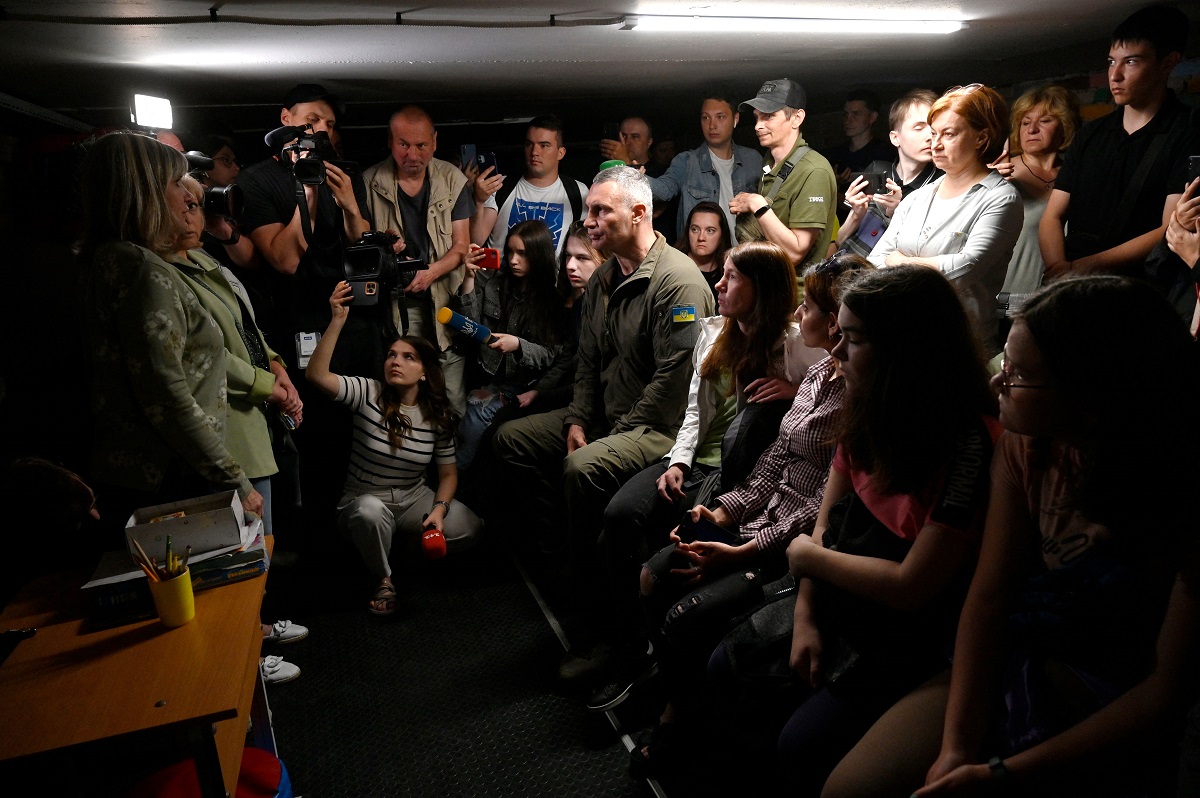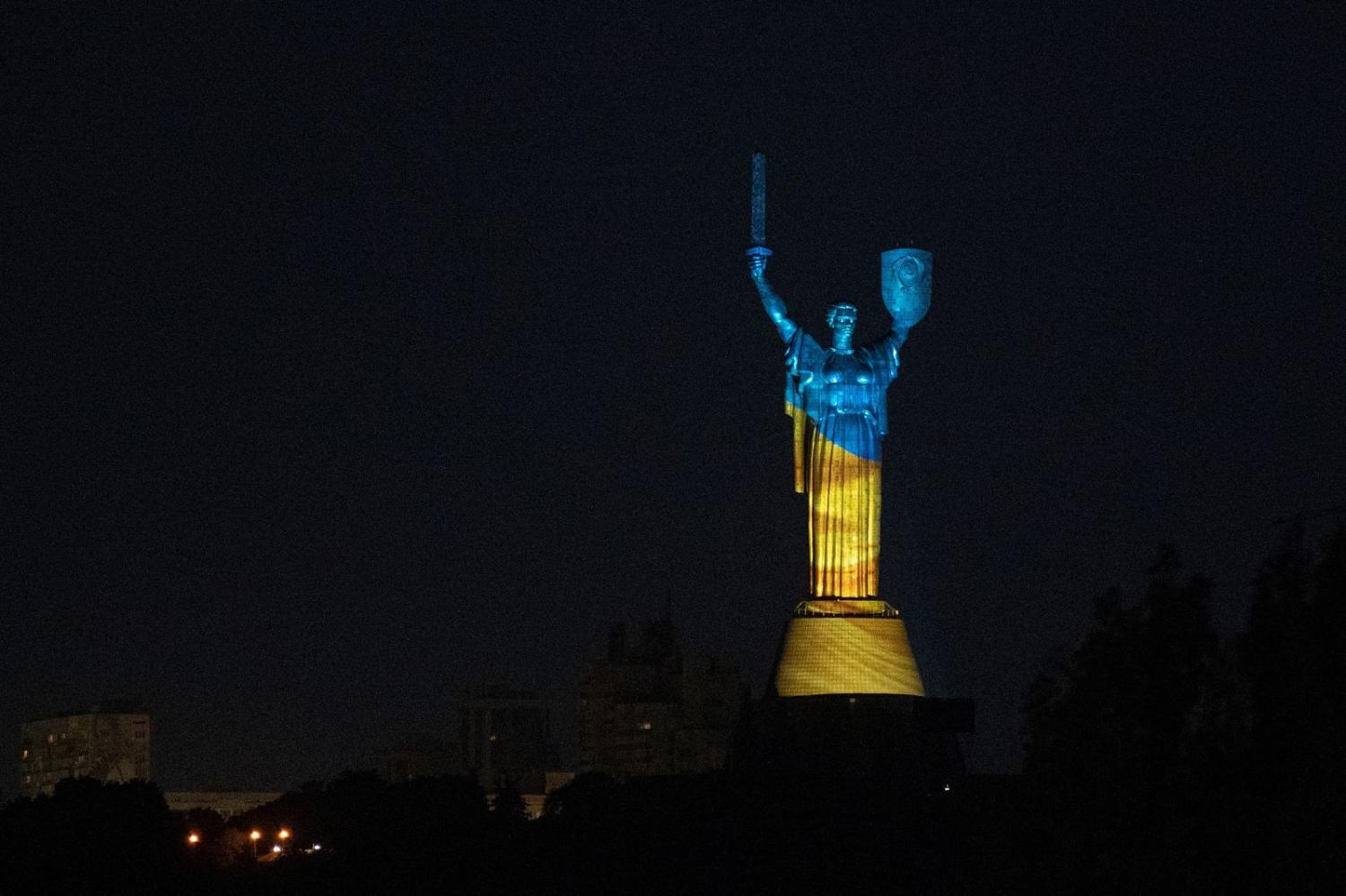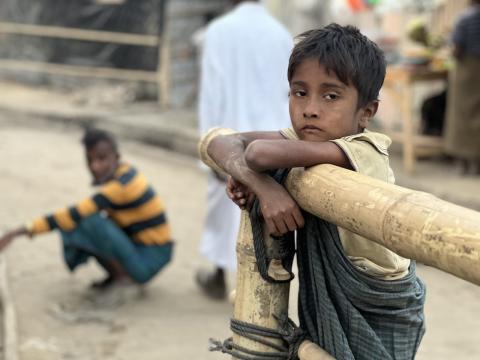Nearly 18 months into Russia’s invasion of Ukraine, there is little prospect of an early end to the fighting. Ukraine’s long-awaited counter-offensive, now underway, is making only slow progress. This is unsurprising, since Russian forces are now well dug in, with formidable, layered defensive fortifications arrayed along the extended line.
Admittedly, Ukraine may not yet have fully committed its strongest fighting forces, bolstered by Western equipment and training, to the counter-offensive. Others claim that Russia has few reserves behind its fortified defensive lines, and that the quality and morale of its troops are probably low.
It’s possible, then, that Ukrainian forces could yet gain momentum and make significant headway with their counter-offensive. But breaking through well-entrenched Russian lines, especially lacking air power cover, will be very challenging.
More likely, absent a collapse in Russian military command or morale – admittedly, not such an unreal prospect as seemed the case a year ago – is that the fighting will continue for a long time yet. With neither side capable of delivering a knockout blow, this portends an intense war of attrition, testing the endurance of both sides.
At the same time, though, the abortive Prigozhin mutiny has left Russian President Vladimir Putin weakened, and perhaps vulnerable, at home.
Does this mean it’s time now to start exploring an end game, some kind of negotiated end to the fighting, as has recently been suggested?
Not really. This could prove risky and premature.

Putin could interpret such a move as signalling weakening Western resolve, and reinforce his belief that time is on his side (especially with the prospect of Donald Trump returning to the US presidency later next year). Calls for negotiations might also encourage those pressing misguidedly for an early ceasefire.
Unless accompanied by the withdrawal of Russian forces from occupied Ukrainian territory, a ceasefire now would simply freeze the conflict to Moscow’s advantage. It would leave Russia in control of the nearly 20 per cent of Ukraine’s territory it currently occupies and give Moscow time and space to reconstitute its forces for further aggression.
Talk of negotiations is largely academic at this point anyway. Neither side has shown any serious interest so far in compromise or negotiations, especially as both remain convinced they can prevail on the battlefield.
For Ukraine, this is entirely understandable: it’s an existential struggle. The war has forged a stronger sense of national identity and unity among Ukrainians – just one example of how counterproductive Putin’s effort to subjugate Ukraine and extinguish its sovereignty and identity has been.
And while initially focused just on national survival, Ukraine is now more confident militarily, and determined to recover its full sovereignty and post-1991 territorial integrity. It’s crucial at this time for Kyiv’s Western supporters to continue their strong political backing for Ukraine and sustain the flow of military and economic assistance – as underscored at the recent NATO and G7 summits.
The economic dimension is key. The longer wars go on, the economic capacity of the combatants to sustain their military capabilities becomes as important as the political will to fight. Keeping its army in the field and repairing its war-damaged infrastructure is a daunting challenge for Kyiv, which is facing on-going budgetary pressures. Ukraine needs substantial, continuing Western economic aid to maintain and strengthen the sinews of its military forces.
What about Russia?
The Kremlin remains committed to sustaining the war. Nor has it evinced any interest in compromise or talks. Moscow hasn’t resiled from its objective to bring Ukraine to heel, but increasingly the war is being framed domestically in Russia as Ukraine acting as proxy in a US-led Western effort to crush Russia.
Putin’s response to the Prigozhin rebellion has been to up the ante: intensifying missile and drone attacks on Ukrainian infrastructure, and repudiating the Black Sea grain transport deal, all while intensifying repression and suppressing military dissent at home.
Much remains murky, but the Prigozhin insurrection is the biggest challenge to Putin in his 22 years in power. It has damaged his authority and credibility. Putin’s initial panic, coupled with the lack of a decisive and coordinated response, either by the security forces or by state propaganda organs, was revealing.
Subsequent signs that Prigozhin’s grievances about the inept and corrupt conduct of Russia’s war in Ukraine are more widely shared in senior quarters of the Russian military must concern the Kremlin. The way the Prigozhin episode unfolded suggests that the regime could prove more brittle than many assumed. The security, business and technocratic elites may now feel less confident that they can rely on Putin to assure their wealth and safety.
In these circumstances, it’s not implausible that if things go badly wrong for Russia on the battlefield in Ukraine that this could have serious political reverberations back in Moscow. In that sense, the war is existential for the Putin regime, as much as it is for Ukraine.
For now, the West’s focus is rightly on helping Ukraine successfully wage the war on the ground. Kyiv’s objective to push Russian forces completely off its territory may be ambitious, but the more progress Ukraine makes on the battlefield, the more advantageous its eventual negotiating position will become.
While it may not be the right time yet for negotiations, it’s important to remain alert to future possibilities. That’s why it makes sense for the United States and its Western partners to keep some lines open to Moscow – for example, through contacts undertaken quietly by CIA Director Bill Burns with Russian counterparts, and by former senior State Department official Richard Haass.
Such contacts don’t in themselves signal any weakening of strong Western support for Ukraine. Rather, they provide an important opportunity to keep tabs on the pulse in Moscow, and potentially gain insights into evolving thinking about the war within the Kremlin.

